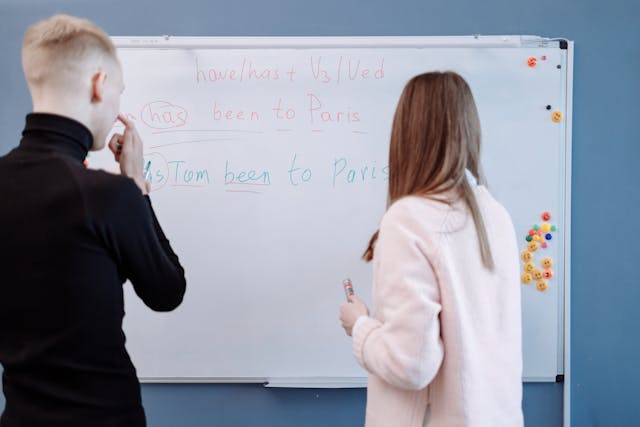Courses for Future International Teachers
TESOL (Teaching English for Speakers of Other Languages) is a documentary confirmation of mastery of the methodology of teaching English that can be provided by Trinity CertTESOL.
In addition to TESOL, there are such certifications in the world as TKT (theoretical base in blocks), CELTA (Certificate in teaching English to Speakers of Other languages), DELTA (Diploma in teaching English to Speakers of other languages) and some others.
TESOL or CELTA?
Formally, there is no difference between TEFL / TESOL course and CELTA, and the definition of the second course indicates that this is “a type of TESOL course”, but the main catch is that TESOL can be obtained for free, and CELTA today is very expensive. Moreover, TESOL can also be completed online and self-paced.
Right to be an international teacher
Having such a certificate gives you the international right to teach English as a foreign language and is both a cool addition to the main pedagogical diploma, as well as an independent document of education.

For example, you can go to China/Asian countries and legally work there as an English teacher. In general, this certificate gives you the right to call yourself a cool teacher.
The specialization consists of 8 courses – 6 theoretical and 2 projects.
- Fundamental principles of teaching
- Theories of second language acquisition
- Lesson design and assessment
- Project: Watching and analyzing lessons
- Teaching reading, writing, and grammar
- Teaching listening, speaking, and pronunciation
- Technology-rich lessons
- Project: Presenting lessons and uploading videos + plans
Final project: Portfolio with all assignments to be reviewed by Arizona State University TESOL Specialization mentors.
During the course, with the exception of your final portfolio, all assignments are peer-to-peer assessed.

Throughout the course, you will be required to watch videos/read literature/upload videos or written answers to questions, complete daily and weekly lesson plan worksheets, lesson plans for different skills (reading-writing or listening-speaking), populate your lessons with technology and online resources, and record yourself presenting a lesson or alone (saying everything the same way you would say it in class) or with an audience.

